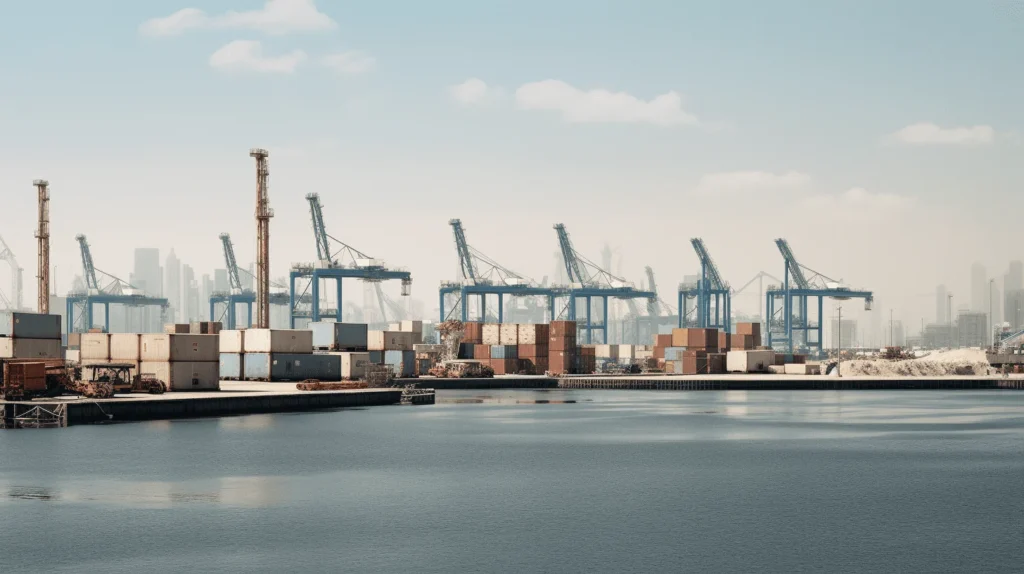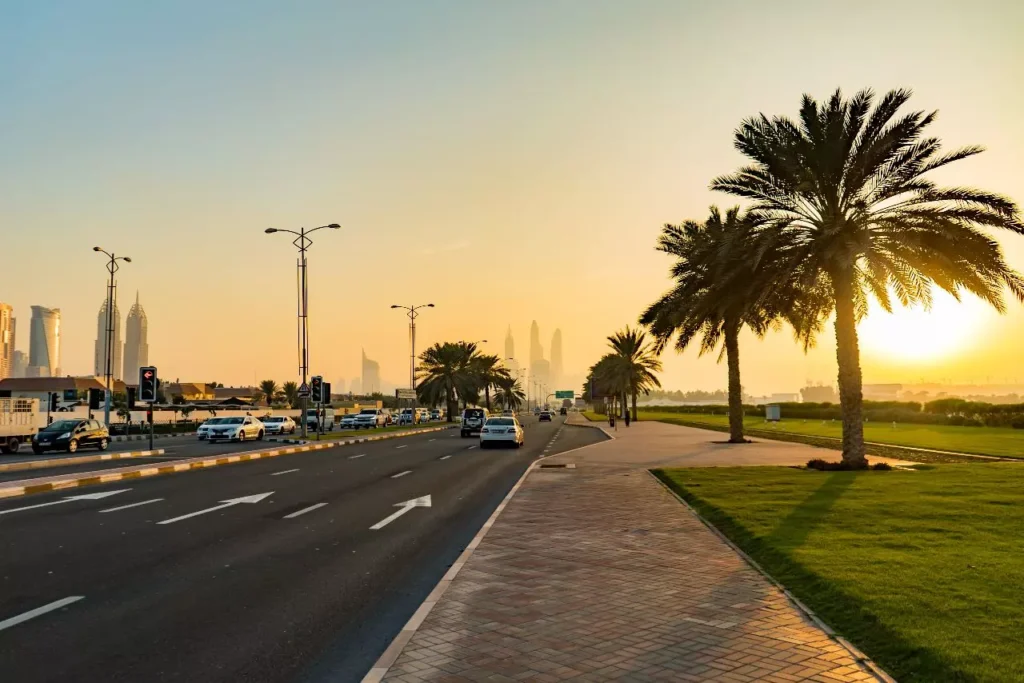The UAE offers some of the finest business opportunities in the world. With its developed infrastructure, modern services, reliable economy, and low tax burden contribute to new companies’ growth. However, understanding the “mainland and freezone difference” is crucial when choosing where to register your business.
The UAE currently offers three options for setting up companies: on the mainland, in a free zone, and in an offshore* zone. Choosing the wrong jurisdiction can lead to business development restrictions, penalties, or lack of tax benefits. In this article, we will detail the differences between setting up companies in the two most popular jurisdictions: the mainland and free zones. If you’re seeking answers to these questions and wondering what is difference between mainland and freezone UAE, read on.
* Offshore companies do not operate within the UAE, so their comparison in this context would be somewhat incorrect.
What is mainland in UAE?

A mainland (local) company is an enterprise registered within Dubai, Abu Dhabi, or another emirate, licensed by the UAE Department of Economic Development (DED). Such a business can operate in any sector of trade, industry, or tourism. The key advantages of setting up a mainland company in Dubai and other Emirates include:
- No territorial restrictions for business. A mainland company can operate anywhere in the Emirates, including free economic zones, as well as abroad.
- Participation in government tenders and contracts. Local companies can take part in large-scale projects from the UAE government, which helps boost their reputation and profitability.
- Variety of legal forms. Entrepreneurs often choose Limited Liability Companies (LLC), which can engage in almost any activity except banking, investment, and insurance. There are also options for registering private and public joint-stock companies, general or limited partnerships.
- 100% capital ownership. Previously, only companies in free zones could enjoy this benefit. On the mainland, starting a business required attracting local investors holding at least 51% of the shares. This requirement was recently lifted for certain activities to encourage entrepreneurship and attract investments to the mainland.
- No limit on the number of visas. In the Emirates, more than 80% of the population consists of immigrants; according to some sources, this figure exceeds 90%. At the same time, businesses are allowed to hire only 2% locals. This means companies planning to expand their staff to 50, 100, or more people will need numerous visas.
- Expansion opportunities. Mainland companies can open branches and representative offices in free and offshore zones to reach more clients.
Free Zone company meaning

A Free Zone (from the English term “free zone”) is an economic free zone or FEZ in the UAE, where 100% foreign ownership of enterprises was initially permitted. Establishing a business in a free zone also serves as grounds for obtaining residency with favorable living conditions.
Other advantages of free zone companies include:
- Tax benefits. Free zones offer tax advantages, including a 0% VAT rate and exemption from corporate tax for a certain period (usually 15-50 years) under certain conditions.
- Easy registration. The company registration process in Free Zones is usually quick and simplified.
- Infrastructure and logistics. Free Zones provide well-developed infrastructure and proximity to seaports and airports, which are convenient for business.
- Specialized platforms. Some free zones specialize in specific industries (e.g., technology, media, logistics), which makes it easy to choose a development direction and access specific markets.
- Capital repatriation. Investors in Free Zone companies can fully repatriate all profits out of the country.
- Exemption from customs duties. Companies trading within the Free Zones of Dubai are exempt from this financial burden.
Disadvantages of Free Zone companies in Dubai and other emirates:
- Territorial restrictions: business operations are limited to within the SEZ or abroad.
- Ineligibility for government tenders.
- Limited visas for foreign employees. As the company expands, it may need to address staffing needs with local specialists or liquidate the business in order to shift to the mainland.
- Despite tax benefits, companies must conduct an audit if the annual turnover reaches 375,000 dirhams.
- Opening a bank account in a free zone may require a significant contribution to the authorized capital.
What is the difference between freezone and mainland in the UAE?

Mainland companies are governed by the Department of Economic Development (DED) in the UAE. By law, they are required to pay 5% VAT upon reaching a turnover of AED 375,000 and a 9% corporate tax. Businesses registered in free zones have their own governing bodies, the Free Zone Authority (FZA). As a result, free zone companies are exempt from taxes and customs duties. However, they have limitations on the number of visas and territorial restrictions. The difference between mainland vs freezone Dubai or other Emirates companies regarding 100% foreign ownership is now practically non-existent.
How to make the right choice between a freezone vs mainland company
The choice of jurisdiction should be based on the needs of your business needs. Much depends on what exactly you will be doing, how you envision your customer, and which markets you are targeting.
Type of activity
Mainland companies offer a wide range of activities. On the mainland, you can choose any commercial or industrial activity from over 2,000 options. In Free Zones, on the other hand, there are typically restrictions due to the specific focus of the SEZ.
Your clients
If you target customers outside the UAE, such as intending to sell goods through an online store, registering in a free zone will be sufficient. If you plan to open shopping centers with branches throughout the mainland, targeting local customers, registering a mainland company would make more sense.
Number of employee visas
By registering a mainland company, you can issue any number of visas for your compatriots. Free Zone companies are limited to about ten visas and can invite only relatives of the owners and two individuals as domestic staff.
Licensing
To register a business on the mainland, you need to obtain a series of permits. In some cases, such as opening a tourism business,employees will need to undergo training and certification. The local authorities are necessarily involved in the licensing process. Also, to apply for a license, you need to rent an office, which is necessary for registering a legal address.
The licensing process for Free Zone companies is simplified. You only need to hire a virtual office and rent a mailbox for correspondence to obtain a legal address. The only downside is that the license only allows you to operate within the SEZ.
Comparative table
For your convenience, we provide a summary in one table.
|
Mainland company |
Over 2000 types of activities. |
|
Free Zone |
Limited selection of activities. |
|
Mainland company |
Commercial activities allowed within the UAE, in SEZs, and abroad. |
|
Free Zone |
Business can be conducted in SEZs, within the UAE, and on the international market |
|
Mainland company |
No limits on the number of visas. |
|
Free Zone |
Limited number of visas. |
|
Mainland company |
Licensing requires obtaining several permits. Proof of qualification needed for professional activities. |
|
Free Zone |
Licensing process is usually quick and simplified, done through a “one-stop shop” system. |
|
Mainland company |
5% VAT and 9% corporate tax. |
|
Free Zone |
5% VAT and 9% corporate tax. However, in some cases (depending on the company’s activities), tax benefits can be obtained. |
|
Mainland company |
Requires a physical office of at least 100 m². |
|
Free Zone |
A virtual office is enough. |
Conclusion
In this material, we discussed concepts such as mainland companies and free zones in Dubai (UAE), comparing the advantages and limitations of the two types of jurisdictions. Nevertheless, it can be challenging for a foreigner to decide where to register their business. We offer to save you time by consulting our qualified specialists. Understanding the specifics of local laws and considering your needs, we will select the best option for starting your business in the United Arab Emirates.
As a licensed agent, we will help you register your company in a way that allows you to enjoy tax benefits or access to global markets!









